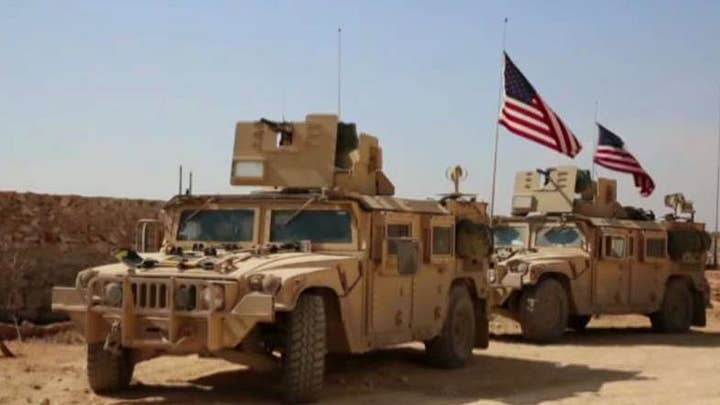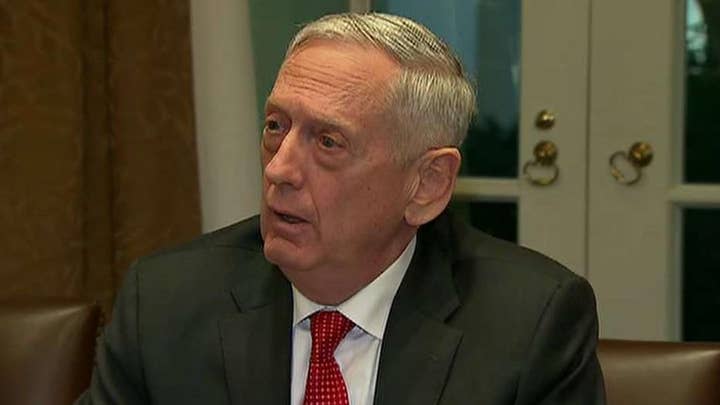Former Defense Secretary Leon Panetta strongly criticized President Trump’s announcement of troop withdrawal from Afghanistan and Syria – saying the move sends “a terrible message” to the United States allies around the globe and threatens the country’s national security.
Speaking on “Fox News Sunday,” Panetta – who among other roles served as Secretary of Defense under then-President Barack Obama – said that despite good progress the military has made against the Islamic State, the U.S. is far from declaring victory against the terrorist network and withdrawing troops from the Middle East leaves the country vulnerable to terror attacks.
“I’ve never seen a situation like this,” Panetta said. “The step to suddenly withdrawal the troops from Syria has sent a terrible message to the world about where we stand.”
Panetta’s criticism is just the latest fallout from Trump’s decision to pull all of the roughly 2,000 U.S. forces from Syria in the coming weeks. Earlier in the week, Defense Secretary Jim Mattis announced his departure from the president’s Cabinet and on Friday Brett McGurk, the U.S. envoy to the global coalition fighting ISIS, resigned in protest.
"The recent decision by the president came as a shock and was a complete reversal of policy," he said in an email to his staff viewed by The Associated Press. "It left our coalition partners confused and our fighting partners bewildered with no plan in place or even considered thought as to consequences."
Trump played down the development, tweeting Saturday night that "I do not know" the envoy and it's a "nothing event." He noted McGurk planned to leave soon anyway and added: "Grandstander?"
"We were originally going to be there for three months, and that was seven years ago -- we never left," Trump tweeted. "When I became President, ISIS was going wild. Now ISIS is largely defeated and other local countries, including Turkey, should be able to easily take care of whatever remains. We're coming home!"
Although the civil war in Syria has gone on since 2011, the U.S. did not begin launching airstrikes against IS until September 2014, and American troops did not go into Syria until 2015.
Trump's declaration of a victory over IS has been roundly contradicted by his own experts' assessments, and his decision to pull troops out was widely denounced by members of Congress, who called his action rash.
Mattis, perhaps the most respected foreign policy official in the administration, announced on Thursday that he will leave by the end of February. He told Trump in a letter that he was departing because "you have a right to have a Secretary of Defense whose views are better aligned with yours."
The withdrawal decision will fulfill Trump's goal of bringing troops home from Syria, but military leaders have pushed back for months, arguing that ISIS remains a threat and could regroup in Syria's long-running civil war. U.S. policy has been to keep troops in place until the extremists are eradicated.
ISIS militants still hold a string of villages and towns along the Euphrates River in eastern Syria, where they have resisted weeks of attacks by the U.S.-supported Syrian Democratic Forces to drive them out. The pocket is home to about 15,000 people, among them 2,000 IS fighters, according to U.S. military estimates.
But that figure could be as high as 8,000 militants, if fighters hiding out in the deserts south of the Euphrates River are also counted, according to the Syrian Observatory for Human Rights, which monitors the conflict through networks of local informants.
The Associated Press contributed to this report.














































